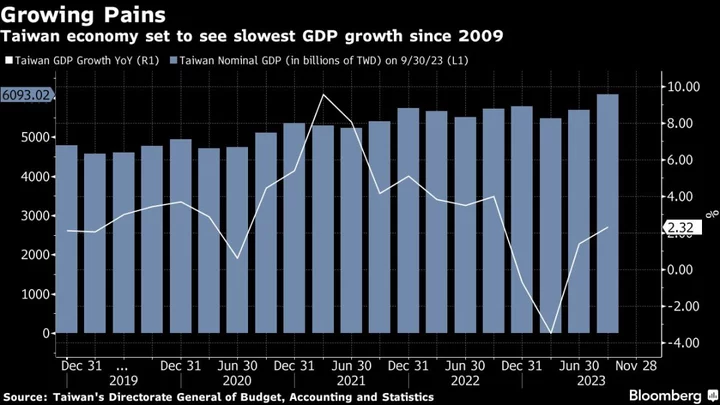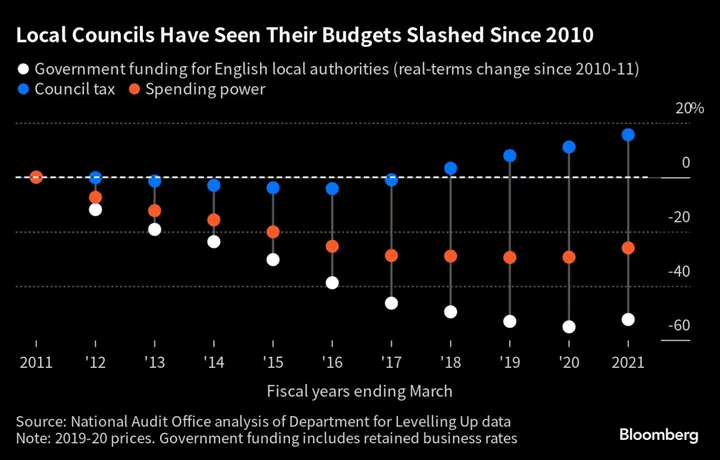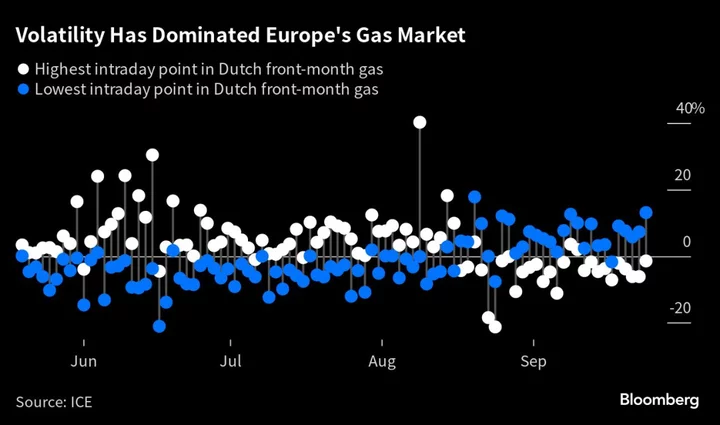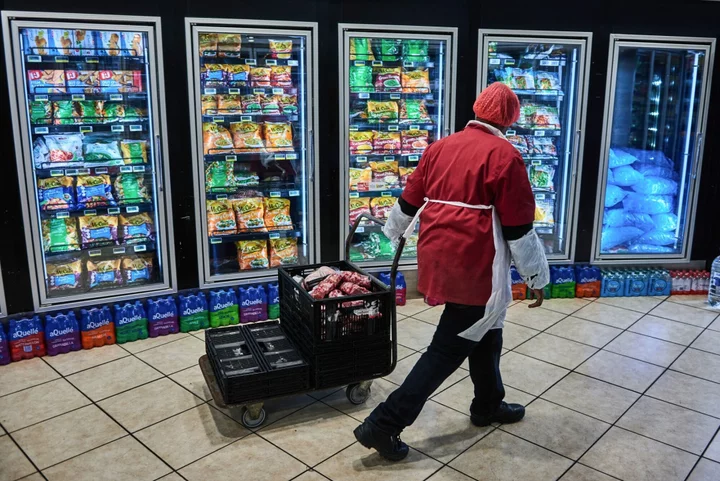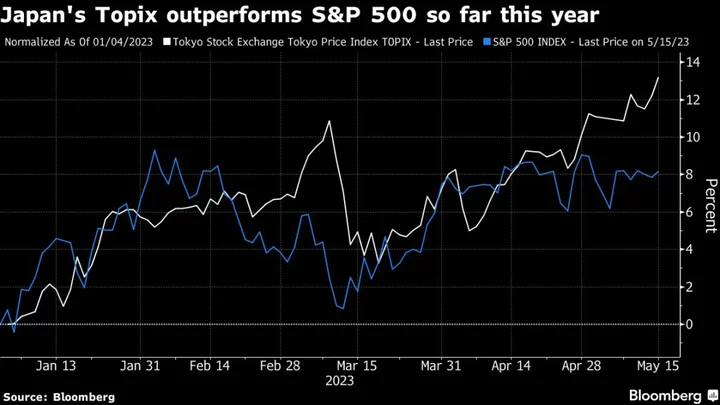Taiwan cut its growth forecast for this year to the slowest pace since the global financial crisis in a setback to the ruling Democratic Progressive Party ahead of January elections.
The economy will likely expand 1.42% in 2023, the statistics bureau said in a statement Tuesday. That would be the weakest annual growth since 2009, and compared with an August projection of 1.6%. Gross domestic product is set to grow 3.35% in 2024, up slightly from an earlier forecast of 3.32%.
Taiwan’s economy is set to be a key issue in the Jan. 13 presidential election. During the pandemic, growth exploded off the back of massive demand for goods produced by the trade-dependent island, including its booming semiconductor industry.
The ruling DPP may argue that it’s still a safe pair of hands given the trajectory, even with the recent slowdown — though the main reasons for weak GDP growth in 2023 have been a larger-than-expected decrease in exports and investment, according to the statistics bureau.
The rival Kuomintang and Taiwan People’s Party say they can boost business by improving fraught relations with China. They’ve also zeroed in on domestic concerns, including the high costs of housing and of raising kids.
Consumer prices are set to increase 2.46% this year before easing off 1.64% in 2024. The rising cost of staples such as eggs and cooking oil have hurt many Taiwanese, and the central bank earlier this month signaled there may be further rate hikes after the October consumer price index jumped a higher-than-expected 3.05%.
Despite the revised GDP forecast for 2023, looking forward, the economy is “making progress steadily,” said Chu Tzer-ming, chief statistician at Taiwan’s statistics bureau.
Consumer confidence has rebounded this month November, according to a National Central University survey published by the Central News Agency on Nov. 27. But the NCU said much of that came from gains in Taiwan stocks as foreign investors increased their holdings.
The economy’s growth driver “should gradually rotate from consumption to net trade again as the tech cycle has bottomed,” said Michelle Lam, greater China economist at Societe Generale SA in Hong Kong. “Consumer spending may get less of a boost from the government’s stimulus.”
Vice President Lai Ching-te is seeking to succeed President Tsai Ing-wen, who will step down due to term limits. Tsai raised the minimum wage seven times, and is set to do so again next year, but critics say the increases have been insufficient to match the rises in property prices.
In late 2022, the DPP suffered major losses in regional elections in the worse showing since it was founded in 1986, thanks to rising disquiet over cost of living issues and an uptick in pandemic deaths.
January’s election is much more likely to be centered around relations with China, with the DPP arguing it’s the only party able to stand up to Beijing, which claims Taiwan as its territory.
But the KMT’s Hou Yu-ih, mayor of New Taipei City, says he can improve relations without endangering Taiwan, building business links and other ties that would reduce the risk of misunderstanding between the two sides.
The TPP’s Ko Wen-je says he’d push for Taiwan to join regional economic organizations, and structure taxes to encourage companies to pay their employees better.
(Updates with additional context, statistician quote, economist comment.)
Author: Chien-Hua Wan and Betty Hou

